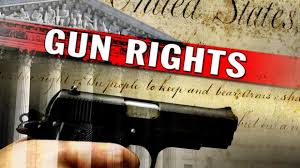In 2023, the Washington State legislature enacted amendments to the gun rights restoration statute – previously RCW 9.41.040, now codified in RCW 9.41.041. As we discussed in a previous blog post, the two main changes to the gun rights restoration process have to do with 1) the State’s obligations when processing firearm rights restoration petitions; and 2) the venue that is available to people petitioning to have their gun rights restored.
Previously, under the process prescribed by RCW 9.41.040, the county prosecutor would simply access their own internal criminal history records and confirm that the person petitioning for restoration of their gun rights was no longer prohibited by Washington State law from possessing a firearm. If the petitioner was eligible, my office would work with the prosecutor to stipulate to the restoration of rights and submit an agreed order to the court for entry. Now, under the new RCW 9.41.041, the prosecutor’s office has additional obligations before they may stipulate to restoration of firearm rights, and before a judge may sign off on an order restoring gun rights. Presently, the state must not only conduct their own criminal history check, but must also obtain certification from the Washington State Patrol that the petitioner is eligible to restore their gun rights. Further, the court (at least in Spokane County) is requiring that petitioners also provide an FBI criminal history report along with the WSP criminal history report and conviction records previously required with petitions to restore gun rights. These new requirements are not terribly onerous, but it is important to be aware of them so that the restoration of your firearm rights is not delayed more than necessary.
The other big change that the new amendments to the Washington gun rights restoration laws implemented has to do with the proper venue , or which court, in which a petitioner may seek to restore their gun rights. Previously, a person could petition for restoration of firearm rights in either the county in which the prohibiting conviction took place, or their county of residence. Under the new RCW 9.41.041, a petitioner must seek restoration in a county that entered a prohibiting conviction. The problem that arises here has to do with prohibiting convictions that took place outside the State of Washington. Previously, if a person was prohibited from possessing a firearm due to an out-of-state conviction, they could petition for restoration in their county of residence. Now, it would appear that the restoration process is not available to those whose prohibition against possessing firearms in Washington State arise from out-of-state convictions for felony or misdemeanor domestic violence offenses. This matter has gone before the appellate court, and the court upheld the State’s denial of a petition for restoration brought in the petitioner’s county of residence when the prohibiting conviction was from out of state. That matter is currently before the court again on a motion for reconsideration.
Regardless of the State’s position in that case (Arrends v. State of Washington), the GREEN LAW OFFICE continues to work with the prosecutor’s office to refine our understanding of this new law, and with the right set of facts, we believe we have a valid argument that in certain circumstance a Petitioner should be able to seek restoration of their gun rights in their home county for an out-of-state prohibition. We have been tirelessly studying Washington State’s gun rights restoration laws for over 15 years now, and have sought and won restoration for hundreds of clients in counties all over the state. If you have lost your right to possess a firearm, call the GREEN LAW OFFICE today to discuss how we can help you restore your gun rights.

